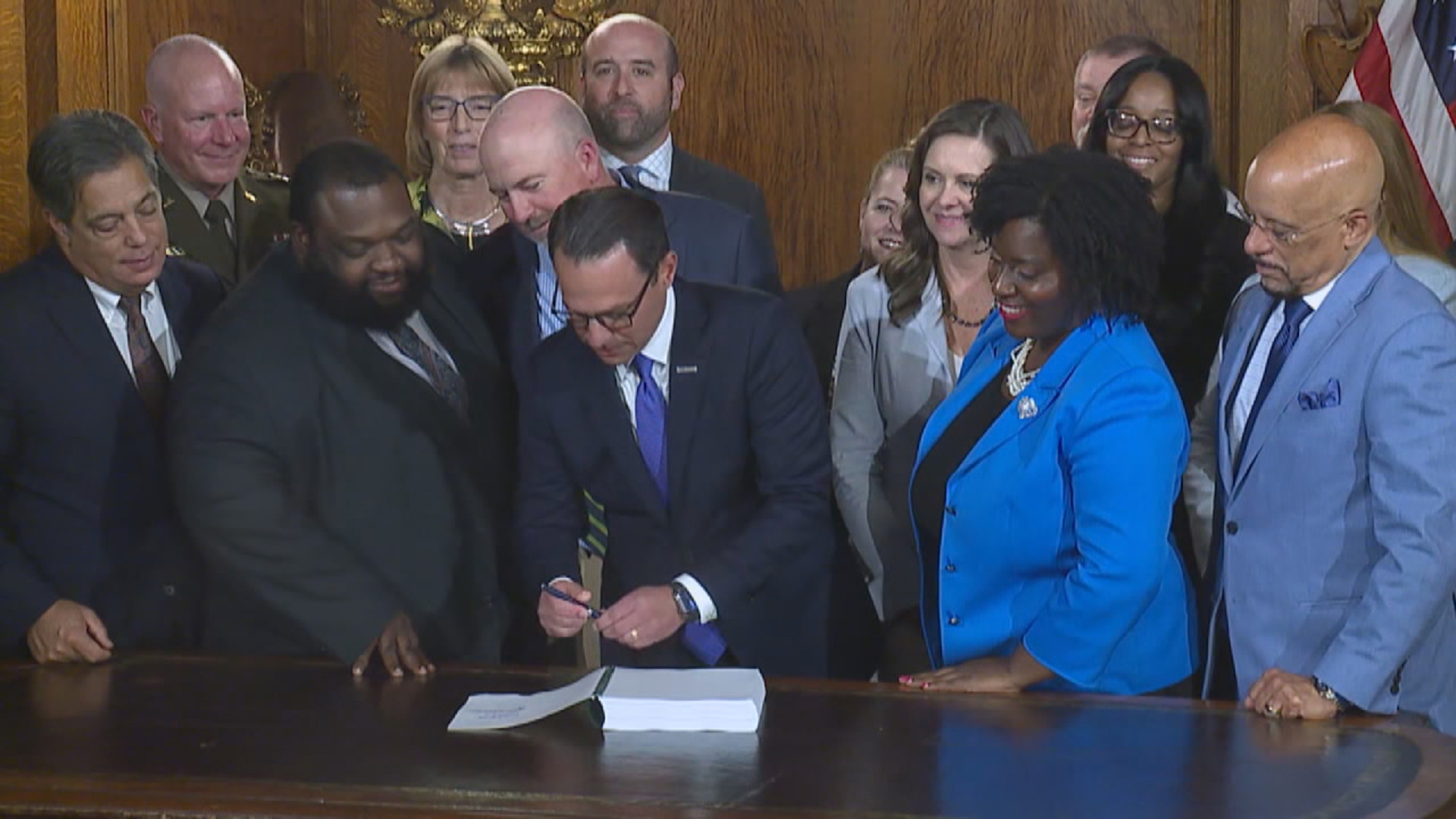HARRISBURG, Pa. — After days of negotiations, the 2024-2025 Pennsylvania State Budget was officially signed into law Thursday night.
“There’s no question that compromise was essential, and I think that’s what we did," said Senator Jay Costa (D-Allegheny).
Governor Shapiro signed the budget after state lawmakers worked eleven days past the deadline to get it to his desk.
The budget features record-level spending on education, which Senator Costa said came at the cost of some items on the governor’s original budget. Among the items include legalizing marijuana, raising the minimum wage, and regulating "skill game" slot machines.
“Those were things the governor hoped for, but we couldn’t bring to closure," said Senator Costa. "But I think the biggest issue was figuring out how much we would spend in the education space.”
Senator Scott Martin (R-Lancaster) said the budget also significantly increases businesses and the economy without raising taxes. However, Pennsylvania Republicans were unable to advance cuts to personal income taxes.
“It was an absolute no-go with the House Democrats in terms of anything related to the gross receipts tax or personal income tax," said Senator Martin. "We’re still going to keep fighting for that and that’s not going away.”
Some have derided the finalized budget for cutting too much into the state's surplus. The budget is estimated to create a $3.5 billion deficit.
“The governor says, ‘Well we got funds and reserves to spend that down.’ Well, that is going to be drained pretty quickly when you’re spending 3.5 billion dollars more than revenue," said Nathan Benefield with the Commonwealth Foundation.
The County Commissioners Association of Pennsylvania is also critical of the budget for not adequately addressing mental health funding. The budget only increases mental health resource funding by $20 million.
“Demand is going to keep increasing, while the funding maintains that slow, slow pace," said Lisa Schaefer, the president of the County Commissioners Association of Pennsylvania.
State lawmakers say they will start renegotiating any items that weren’t included in the budget during the fall session.

